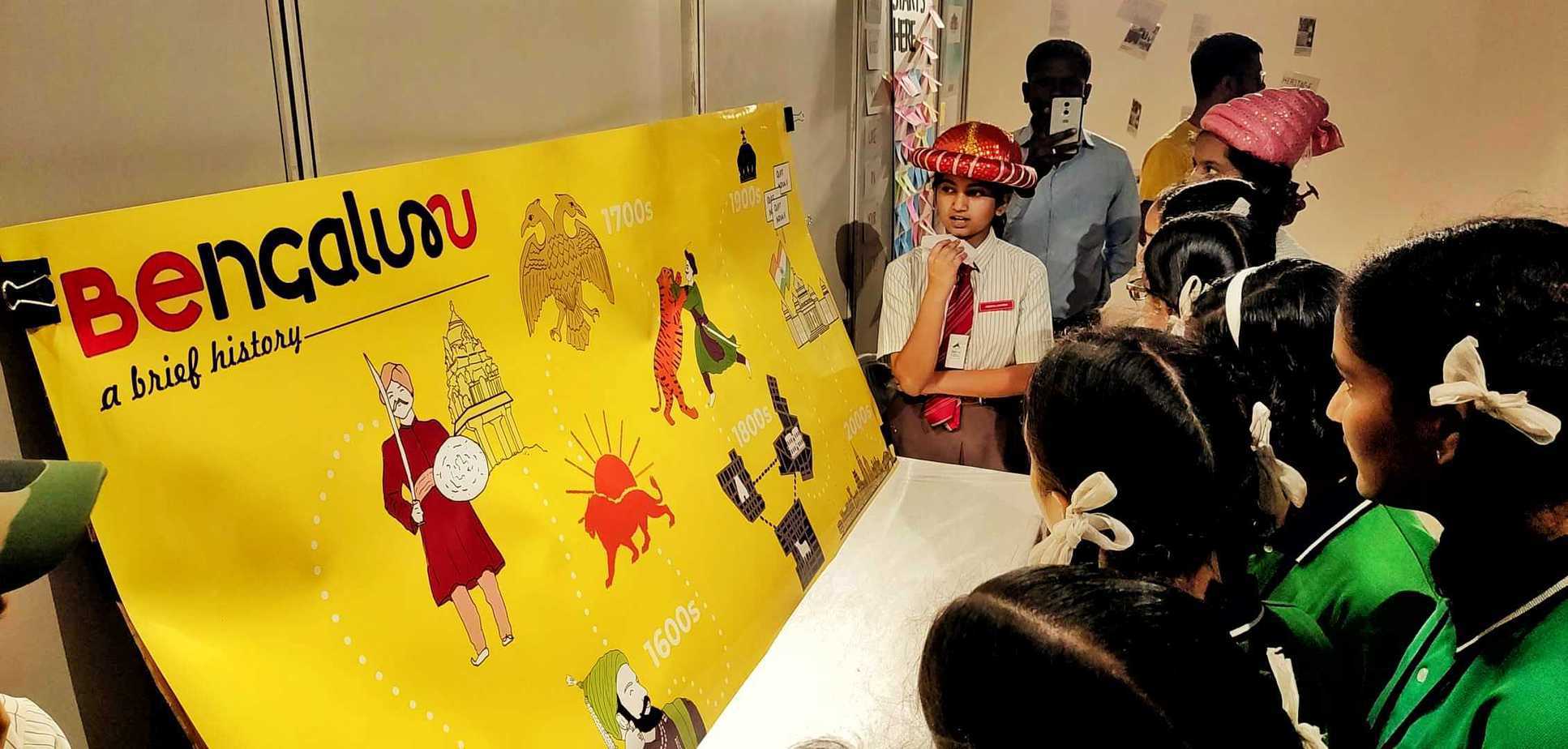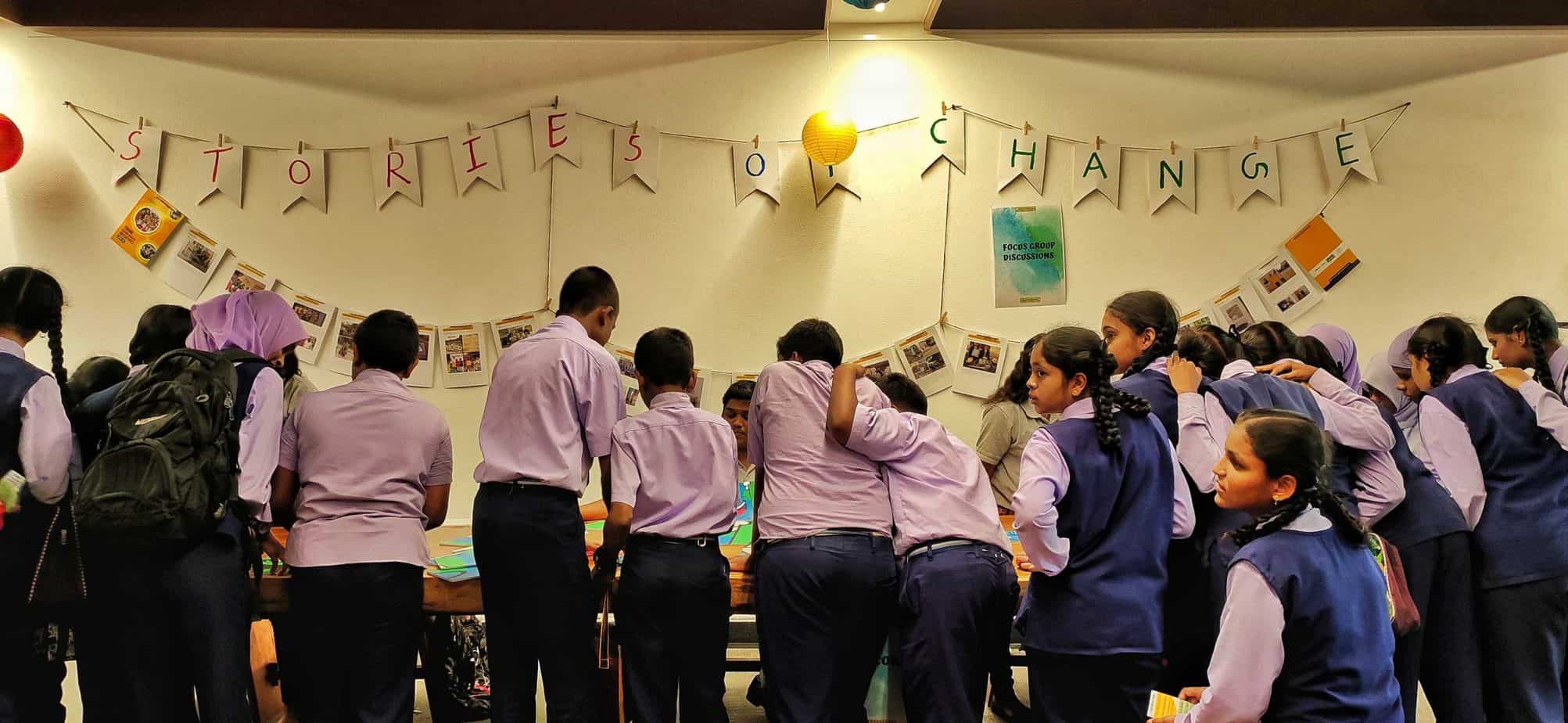The third edition of Janaagraha’s annual Bengaluru Civic Fest, held in association with Cisco, showcased how Gen Z is taking initiative to bring change in society. The one-day fest was held at the Bangalore International Centre, Domlur.
It was a culmination of the IChangeMyCity Challenge, organised from August to December 2019, in which students were tasked with identifying a civic issue that affects their neighbourhood and to come up with an innovative solution to address it.
Over 14,000 students from Classes VI to XII across India participated in the challenge through the IChangeMyCity Challenge portal, co-created by Cisco. Twenty-five teams, who came up with unique solutions to civic issues, were shortlisted to present their ideas at the Bengaluru Civic Fest. The students exhibited their projects at individual stalls.
This was in addition to over three lakh students reaching through various other strands of civic learning across India.
The Fest engaged over 2000 students through experiential activities on composting, fire safety and security drills, teaching how to create wealth out of waste, motivating them to spark civic change. Students also interacted with civic activists like Srinivas Alavilli, co- founder of Citizens for Bengaluru, Kuldeep Dantewadia, co-founder of Reap Benefit, educator Preeti Mathur, and others.
Other speakers at the fest included Joginder Yadav, Director, Legal & General Counsel, India at Cisco, panelists such as Anil Shetty and Varun Agarwal who spoke about ‘Bengaluru@500: Decoding the Decade of Challenges Ahead for Namma Ooru’, and Aaron Mirza who touched upon ‘Rights vs Duties: Young India’s Solutions for the Asian Century’.

A special stall was set up by Heritage Beku where students had the opportunity to better understand their city’s history and heritage. Pic: Ekta Sawant
The visiting students were seen excitedly discussing with the IChangeMyCity Challenge finalists on how they addressed civic issues in their neighbourhoods. The 25 projects touched upon a range of civic issues like garbage disposal, awareness campaigns, innovative alternatives to resolve common problems, and sustainability.
Prarthana Ramesh, Manager – Civic Learning at Janaagraha, said, “The projects included innovations by students. The students of St Joseph’s Boys High School showcased a ‘prototype alternate fuel’ made of acetylene, which according to them is not just cost-effective but is cleaner and hence can reduce CO2 emissions.”
Similarly, students of Smt Kamala Bai Educational Institution created the working model of a smart irrigation system which aims to reduce water wastage and also save rainwater. “The students built a sensor which detects water drops and in-turn opens a catchment area which stores rain water. Unlike traditional irrigation controllers that operate on a preset programmed schedule and timers, this smart irrigation controller monitors weather, soil conditions, evaporation and plant water use to automatically adjust the watering schedule to actual conditions of the site,” Prarthana said.
Meanwhile, students of Srinidhi Public School promoted ‘zero-waste campus’. They created storage and dustbins using waste paper, and turned the wet waste generated in the school into high quality compost, which is now used in the school garden.

‘Stories of change’, briefly explaining the shortlisted projects, were displayed at the venue. Pic: Ekta Sawant
The finalists also featured young change makers who identified civic issues and presented the problem to people’s representatives and civic authorities, to get it resolved. Students of Assisi School and Siri School filled potholes on roads around their school, and hence prevented mishaps. Whereas the students of Delhi Public School Varanasi adopted the Chyavan Rishi Kund neighbourhood, planted more trees and created infrastructure using discarded plastic bottles.
“Civic education or active citizenship education is the only way to solve complex 21st century challenges in a sustainable manner,” said Srikanth Viswanathan, CEO of Janaagraha. “We need a whole of systems and whole of society approach to solve complex challenges like climate change, water, sanitation and public health, immigration and jobs, and equity. Active citizenship education seeks to deeply embed skills and competencies of systems thinking, collaborative problem solving and civic leadership”.
BBMP Mayor Goutham Kumar, Standing Committee Chairpersons, civil society organisations, opinion leaders and the local councillor attended the event.
“Our partnership with Janaagraha is part of our mission to create the next generation of problem solvers. An active citizenry is a first step towards effective problem solving,” said Murugan Vasudevan, Head- South Asia, Social Innovation Group, Cisco. “By bringing in the power of digital platforms to Janaagraha’s work, we hope to be able to accelerate the reach of this program and move us closer to our goal of positively impacting 50M people in India by 2025.”
About Bengaluru Civic Fest
Bengaluru Civic Fest is an annual civic convening for school students. The Fest brings together students from different schools to witness the spirit of sustainable citizenship through interactive sessions spread across the day.
[This article is based on a press release from Janaagraha Centre for Citizenship and Democracy, and has been republished with edits]